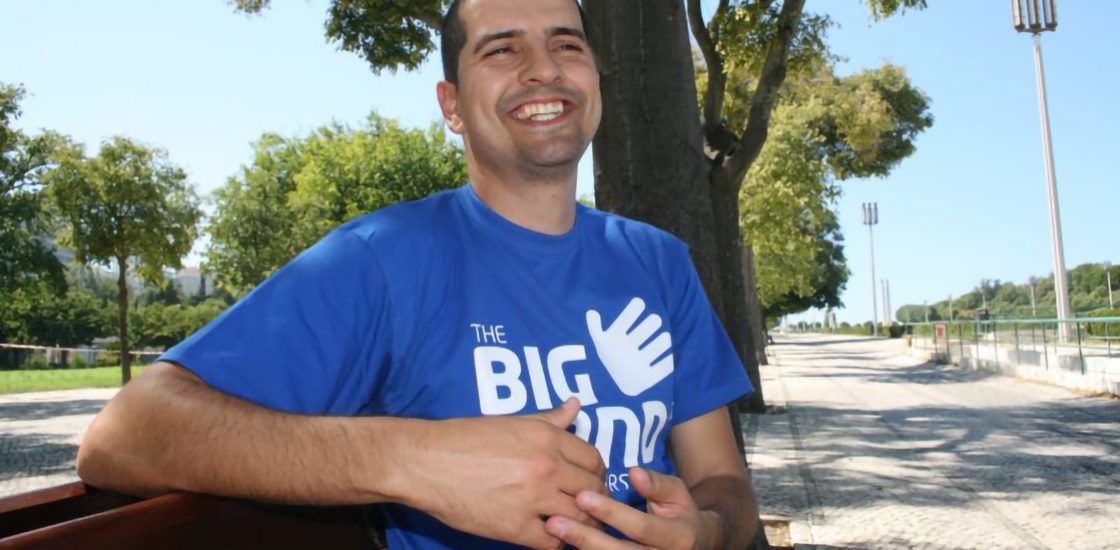The Big Hand, more than a friendly hand
Press | SAPO NOTÍCIAS
Most big projects start with a great idea. Some things start for personal reasons, others for business reasons. Some things start for good reasons, others for bad reasons. The Big Hand started because David Fernandes went to Mozambique looking for answers. An example to follow?
In 2004, when he was 24 years old, David joined a cooperation project in Mozambique where bonds of friendship and trust were created, which led to the creation of The Big Hand, in July 2010, a non-governmental organization whose ‘stable pillars, of security and logistics’ were born in Chimoio.
Big Hand’s big mission? In the words of its founder, ‘[The Big Hand] has as its mission to build child-friendly schools. The Big Hand’s ambition is to ensure that children can grow up in a healthy and safe environment so that they can be better human beings and from there change the world. Our ambition is that all children can go to school, have access to clean water, basic sanitation, they have access to structural and safe conditions and at the same time, they have access to motivated teachers with working conditions.
In his second year in the project, David had the opportunity to take part in a project in Guinea-Bissau and at the time it coincided with an armed conflict that was taking place with Guinea’s troops and the Casa Mansa rebels. At that time, the teacher’s job was to deal with the families displaced by the conflict. While this was a very enriching experience at a humanitarian level, at an emotional level, ‘it was hard and difficult because to see those children in a situation of deep sadness, risk and vulnerability was something that marked us’.
In a tone rarely heard, David talks about the need to act, more than that, about the need for change: ‘Children are by nature happy and the African child is even happier and for a child to lose the joy of being a child in Africa he/she has to have really gone through a lot’ says the founder of the organisation. In practical terms, there is a sponsorship system in which ‘the sponsors by contributing 25€ per month can ensure that the child has access to the basic conditions needed to integrate the school, so as not to suffer from school drop-out’. In addition, the money left over from each child goes towards a community cake so that all the needy can benefit from that help.
In the opinion of David Fernandes, “this logic marks the difference between pure welfare – that is, helping by helping – or solving the problem and we really want to solve the problem. By intervening on the school, The Big Hand is intervening towards all other children including our orphaned children at the same time as the community.”
Because he works directly with The Big Hand community ‘I was very welcomed because people have needs and those who are living here without access to water know how uncomfortable it is not to have that precious good, so any help that comes along is always welcome’, explains David.
However, precisely because most of these children are vulnerable, care must be taken to avoid raising expectations. ‘The sponsors who will be able to visit the children are properly accompanied by the field team and of course when we identify any dangerous situation for the child – a sponsor who is not prepared, who may make promises – the sponsor is removed until he is prepared to give the child what he/ she needs. ’
Much of the work at The Big Hand is done by volunteers in different areas. While in Mozambique the organization relies on local partners to act on the ground – one of the partners is a Catholic mission, the Salvaturian Sisters, the ATM (Association Uncles of Mozambique) and at the moment they are talking to the Municipality of Chimoio which also supports one of the schools. In September, David will legalize The Big Hand in Mozambique so that they also have people on the ground.
Half as a confession, David Fernandes talks about the ambitions of this ‘child’ of his. The Big Hand’s ambition, like David’s, is to make this a better world. How? Through the children. Educated and informed children.’

 Ver todas
Ver todas